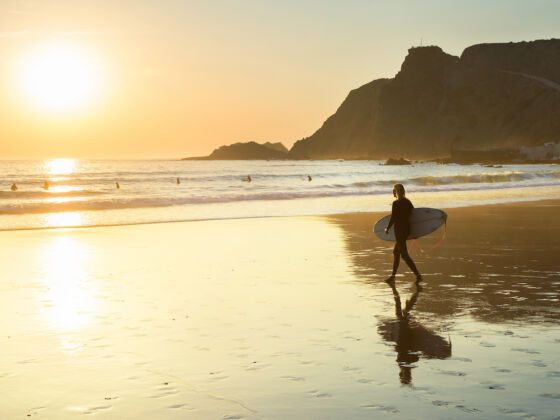1. The coastline is huge.
Portugal has nearly 1,800 kilometers of coastline, and there are beaches for surfing almost everywhere: from northern spots near Porto, to Ericeira, Nazaré, Peniche, Cascais, Costa da Caparica in the south, and some others in the Algarve. It doesn’t matter where you stay, because even if you have to drive two or three hours west, you’ll find a nice place to begin your surf experience.
